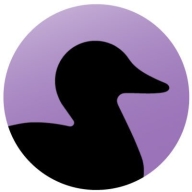

Coverity Static and GitLab both compete in the domain of software development tools with a focus on enhancing code quality and supporting DevOps processes. While Coverity excels in code analysis and security, GitLab offers a robust CI/CD management platform, making each product suited to different aspects of the development lifecycle.
Features: Coverity Static provides comprehensive code analysis with low false positive rates, deep scanning capabilities, and effective integration with CI/CD tools. GitLab shines in CI/CD pipeline management, collaborative work facilitation, and repository integrations, offering a scalable platform for continuous integration and deployment.
Room for Improvement: Coverity Static could improve its reporting engine customization, integration with IDEs, and usability enhancements to reduce false positives. High costs are also noted as a concern. GitLab could benefit from enhancing third-party tool integration, better documentation, and more straightforward deployment processes, along with addressing pricing concerns for smaller teams.
Ease of Deployment and Customer Service: Coverity Static's on-premises model allows control but limits deployment flexibility. Technical support response is varied, needing better communication. GitLab offers versatile deployment options with public cloud support. Although its technical support is variable, the community resources present substantial assistance.
Pricing and ROI: Coverity Static's high price, based on user count, may deter larger teams but promises significant ROI by detecting defects early, saving costs over time. GitLab's free tier and scalable features represent good value, but premium features can be expensive. Both platforms enhance productivity and quality, contributing positively to ROI.
| Product | Market Share (%) |
|---|---|
| Coverity Static | 5.4% |
| GitLab | 2.3% |
| Other | 92.3% |


| Company Size | Count |
|---|---|
| Small Business | 8 |
| Midsize Enterprise | 6 |
| Large Enterprise | 31 |
| Company Size | Count |
|---|---|
| Small Business | 35 |
| Midsize Enterprise | 9 |
| Large Enterprise | 42 |
Coverity gives you the speed, ease of use, accuracy, industry standards compliance, and scalability that you need to develop high-quality, secure applications. Coverity identifies critical software quality defects and security vulnerabilities in code as it’s written, early in the development process, when it’s least costly and easiest to fix. With the Code Sight integrated development environment (IDE) plugin, developers get accurate analysis in seconds in their IDE as they code. Precise actionable remediation advice and context-specific eLearning help your developers understand how to fix their prioritized issues quickly, without having to become security experts.
Coverity seamlessly integrates automated security testing into your CI/CD pipelines and supports your existing development tools and workflows. Choose where and how to do your development: on-premises or in the cloud with the Polaris Software Integrity Platform (SaaS), a highly scalable, cloud-based application security platform. Coverity supports more than 20 languages and 200 frameworks and templates.
GitLab offers a secure and user-friendly platform for CI/CD pipeline management, code repository control, and collaboration, enhancing development speed and efficiency. It facilitates automation with extensive customization and tool integration, ideal for DevOps processes.
GitLab supports source code management, version control, and collaborative development. It's frequently used in CI/CD processes to automate builds and deployments while integrating DevOps practices. GitLab allows companies to manage repositories, automate pipelines, conduct code reviews, and maintain development lifecycles. The platform supports infrastructure and configuration management, enabling efficient code collaboration, deployment automation, and comprehensive repository handling. Many organizations commit and deploy developed code using GitLab's capabilities.
What are GitLab's most valuable features?In specific industries, GitLab serves as a backbone for source code management and CI/CD implementation. Companies leverage its capabilities for infrastructure management and deployment automation, thus streamlining project delivery timelines. Its ability to handle configuration management and code repositories effectively aids in maintaining development lifecycles, making it a preferred choice for organizations committed to enhancing their DevOps practices.
We monitor all Static Application Security Testing (SAST) reviews to prevent fraudulent reviews and keep review quality high. We do not post reviews by company employees or direct competitors. We validate each review for authenticity via cross-reference with LinkedIn, and personal follow-up with the reviewer when necessary.